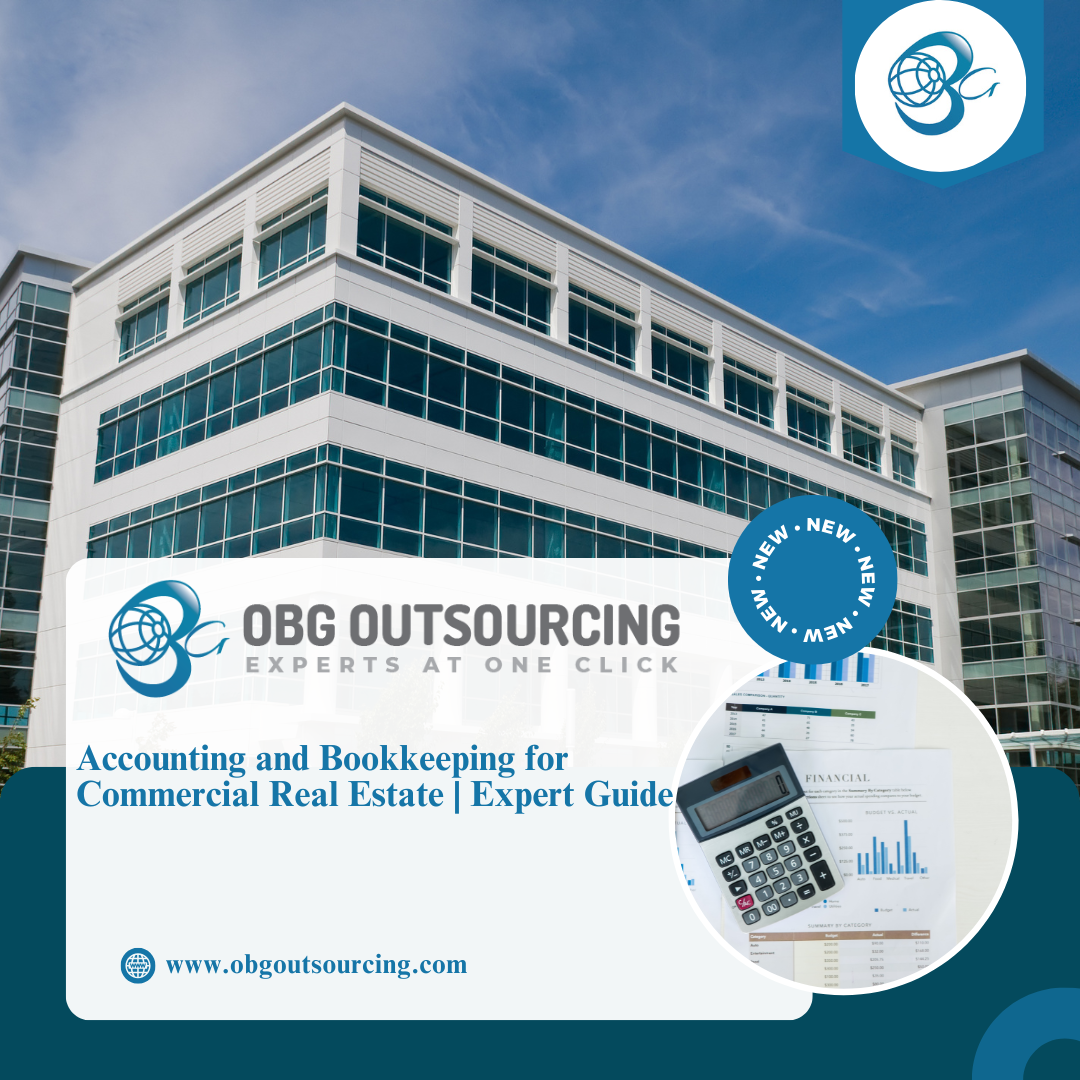When it comes to managing finances in the real estate industry, commercial real estate accounting presents unique challenges that differ significantly from residential property management. From lease structures to depreciation schedules and revenue recognition, understanding these differences is essential for investors, property managers, and developers. In this blog, we’ll explore:
How commercial real estate accounting differs from residential real estate
The best accounting software and tools tailored to commercial property businesses
Why OBG Outsourcing is the ideal partner for real estate bookkeeping and accounting
1. Commercial vs. Residential Real Estate Accounting: Key Differences
1.1 Lease Structures
Commercial Properties: Typically involve complex, long-term leases (e.g., triple net, full-service gross leases) with escalation clauses, CAM charges (Common Area Maintenance), and custom terms for each tenant.
Residential Properties: Standard lease agreements, usually shorter-term, and simpler to manage.
1.2 Revenue Recognition
Commercial leases often involve multiple revenue streams—base rent, variable charges, and service income.
Residential leases generally generate consistent monthly rental income, making cash flow management simpler.
1.3 Depreciation and Tax Treatment
Commercial buildings depreciate over 39 years under U.S. tax law, while residential properties depreciate over 27.5 years.
Commercial investors often take advantage of cost segregation studies to accelerate depreciation and reduce tax burdens.
1.4 Tenant Improvements and Capital Expenditures
Commercial landlords frequently offer Tenant Improvement Allowances (TIAs) and manage substantial capital expenditures, which must be tracked accurately for both accounting and tax purposes.
Residential property managers deal with fewer and smaller-scale renovations.
2. Best Software for Commercial Real Estate Accounting
Choosing the right software is critical for efficiency, compliance, and accurate reporting. Here are the top tools for commercial real estate businesses:
1. QuickBooks Online (with add-ons)
Ideal for small to mid-sized property businesses.
Supports tracking of rental income, expenses, lease details, and CAM reconciliations.
Integrates well with tools like Rentec Direct, Buildium, or AppFolio for property management.
2. AppFolio
Full-featured property management platform.
Offers commercial lease tracking, custom rent rolls, and owner portals.
Includes accounting tools tailored for commercial property managers.
3. Buildium
Great for managing both residential and commercial portfolios.
Includes A/P, A/R, tenant portals, and maintenance tracking.
4. Yardi Voyager
Best suited for large commercial real estate operations.
Offers advanced budgeting, forecasting, and investment management.
5. Sage Intacct Real Estate
Cloud-based financial management for growing commercial real estate portfolios.
Offers multi-entity, multi-location, and multi-currency support.
Supporting Tools:
A2X: For managing Amazon/commercial property eCommerce operations (if any).
Gusto or ADP: For managing payroll and contractor payments.
Expensify: For tracking business expenses and reimbursements.
3. Why OBG Outsourcing is Your Best Accounting Partner for Commercial Real Estate
At OBG Outsourcing, we specialize in delivering tailored accounting and bookkeeping solutions for commercial real estate businesses. Here's why we're your best choice:
Industry Expertise
With 17+ years of experience, our team understands the complexities of commercial leases, CAM reconciliations, and asset management.
Customized Chart of Accounts
We design custom charts of accounts that reflect the unique financial structure of your properties, including income from various tenants and expense allocations.
Software Integration
We work with QuickBooks Online, AppFolio, Buildium, Xero, and other tools to automate workflows and ensure real-time data syncing across systems.
Cost-Effective & Scalable
OBG Outsourcing helps you save on in-house staff costs while offering scalable support that grows with your portfolio.
Tax-Ready Financials
As Enrolled Agents and CPA professionals, we ensure your financials are ready for tax filing, and we provide strategic advice to reduce your tax liability.
Compliance & Reporting
We ensure compliance with industry standards and generate insightful reports for investors, lenders, and internal use.
Conclusion
Accounting for commercial real estate is more than just tracking rent and expenses—it's about understanding complex leases, maximizing tax benefits, and maintaining investor confidence. Whether you're managing a few office buildings or a large mixed-use portfolio, partnering with a seasoned accounting team like OBG Outsourcing gives you a competitive edge.
Let us handle the books—so you can focus on building your real estate empire.
 USA
USA UK
UK Australia
Australia UAE
UAE Canada
Canada

_(7).jpg)
_(6).jpg)


_(5).jpg)
.jpg)
_(4).jpg)
_(1).jpg)
_(2).jpg)
.png)